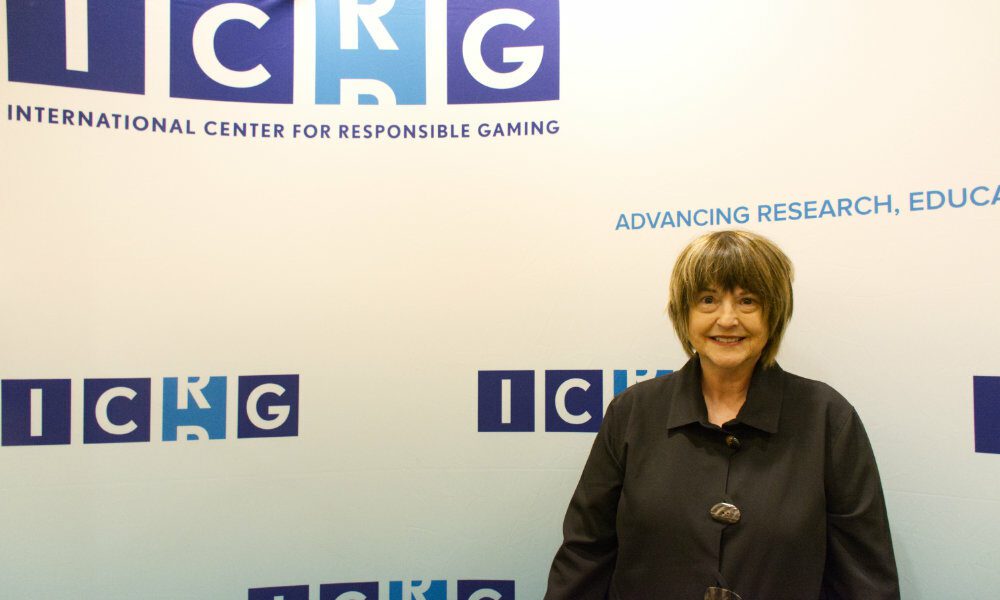In 1999 when legal gambling in brick-and-mortar casinos was limited to Nevada and New Jersey, gambling addiction wasn’t viewed as a hot-button issue. Unlike alcohol or drug abuse, it was hard to recognize when gamblers had issues. Resources to address gambling disorders were scarce.
But when the American Gaming Association was launched in 1995, Frank Fahrenkopf, then the organization’s president, knew gambling addiction must be addressed.
“Frank Fahrenkopf, especially, was concerned about the industry’s responsibility on problem gambling,” said Christine Reilly, senior research director for the nonprofit International Center for Responsible Gaming that the AGA launched in 1999. “And I know that Frank and members like Phil Satre (formerly chairman of Harrah’s Entertainment) – Phil was a pioneer in doing responsible gaming at his properties – they knew that nobody wants to be like the tobacco industry. You want to do it the right way.”
The ICRG held its 23rd annual Conference on Responsible Gambling and Addictions Sunday and Monday at the Venetian Expo in Las Vegas.
According to the conference program, the ICRG’s goal is “to bridge the gap between research and practice by demonstrating how new studies and innovative programs can increase the effectiveness of treatment, screening, public health policy, gaming regulations and responsible gaming tools.”
The conference is meant to “disseminate the research that our investigators are working on,” Reilly said. “Yesterday, the lead investigator of our sports-wagering project presented new findings from that study. … There’re also a lot of issues that we think need to be addressed and that can be beneficial to treatment providers, from RG specialists to a whole range of people, by showing how the research base really makes a difference.”
Reilly noted that Boyd Gaming and Station Casinos were among the first to fund research “that wasn’t being done at the federal level.” In order to make sure the research was unbiased, one of the first things the ICRG did was erect a firewall between the industry and researchers.
“You never want to have to say that research was influenced by the industry,” Reilly says, noting the ICRG adopted the peer-review model used by the National Institutes of Health, which also involves the Science Advisory Board. “That’s a model that has worked for 23 years.”
The ICRG has placed more than 500 original articles in various journals. During the conference, sessions included “Brain Connections: Start Talking with Clients about Gambling and the Brain” and “The Power of Language in Addiction Treatment and Responsible Gambling.”
Reilly believes that enormous progress has been made in more than two decades. But challenges remain, notably getting people with gambling addictions the help they need.
“Only 15% of the people with this disorder seek treatment,” Reilly says. “Then, once they’re in treatment, it’s tough to keep them.
“I think stigma prevents people from getting treatment, because they’re embarrassed and ashamed,” Reilly added. “I think that prevents people using responsible gaming tools. … Why don’t people use these tools? I think a lot of people understand if you have an alcohol or drug problem, but we don’t really get the gambling.”
Reilly would also like to see more research about responsible gaming and an emphasis on how minorities are affected by gambling disorders. But she is heartened by the industry’s embrace of ICRG’s missions.
“I think that once (gaming operators) got involved in this issue, through the American Gaming Association, they really recognized what this was,” Reilly says. “And they realized that they had a responsibility, that the whole effort of working cooperatively with the AGA enhanced their awareness.”


